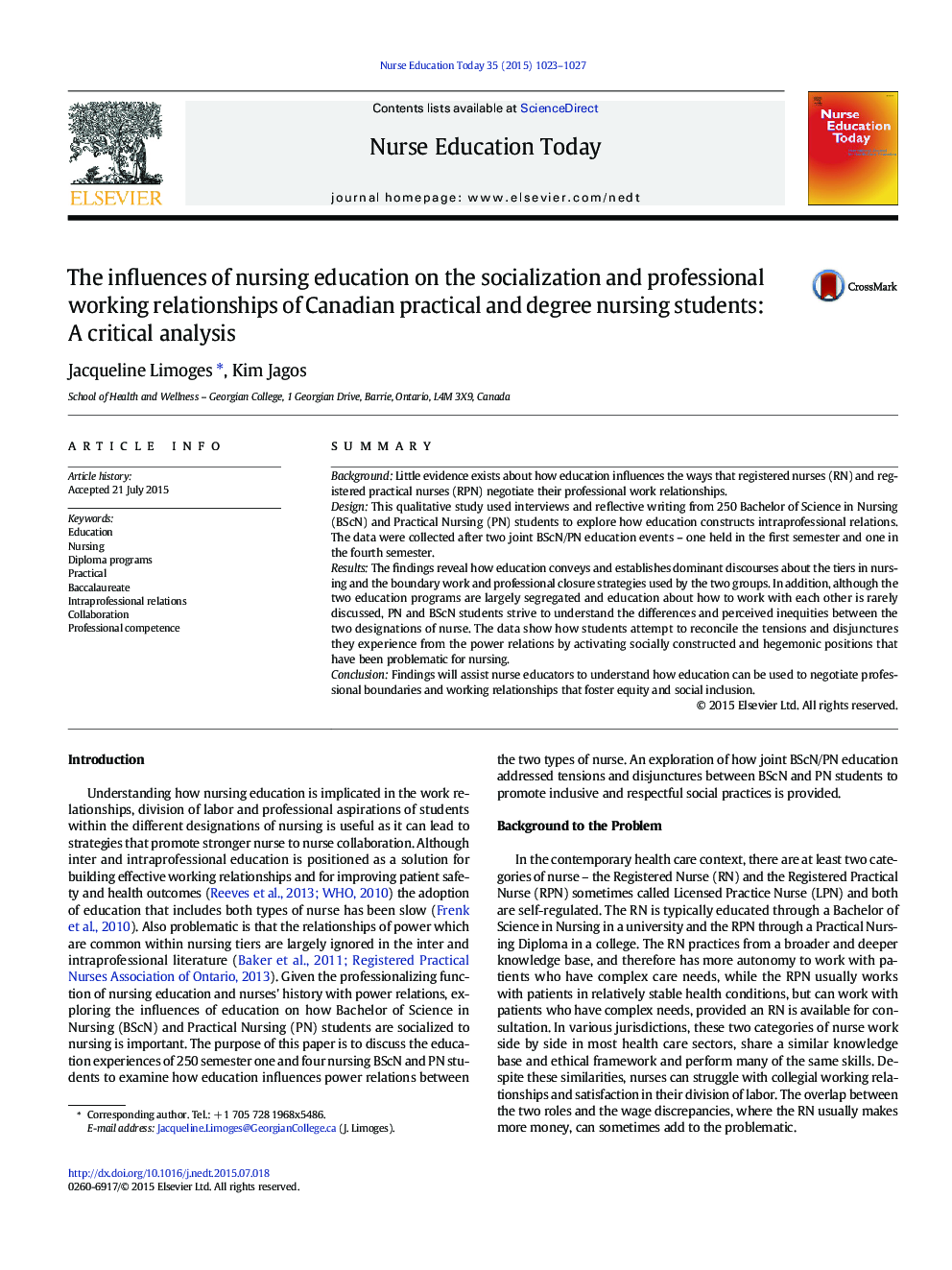| Article ID | Journal | Published Year | Pages | File Type |
|---|---|---|---|---|
| 368097 | Nurse Education Today | 2015 | 5 Pages |
SummaryBackgroundLittle evidence exists about how education influences the ways that registered nurses (RN) and registered practical nurses (RPN) negotiate their professional work relationships.DesignThis qualitative study used interviews and reflective writing from 250 Bachelor of Science in Nursing (BScN) and Practical Nursing (PN) students to explore how education constructs intraprofessional relations. The data were collected after two joint BScN/PN education events – one held in the first semester and one in the fourth semester.ResultsThe findings reveal how education conveys and establishes dominant discourses about the tiers in nursing and the boundary work and professional closure strategies used by the two groups. In addition, although the two education programs are largely segregated and education about how to work with each other is rarely discussed, PN and BScN students strive to understand the differences and perceived inequities between the two designations of nurse. The data show how students attempt to reconcile the tensions and disjunctures they experience from the power relations by activating socially constructed and hegemonic positions that have been problematic for nursing.ConclusionFindings will assist nurse educators to understand how education can be used to negotiate professional boundaries and working relationships that foster equity and social inclusion.
